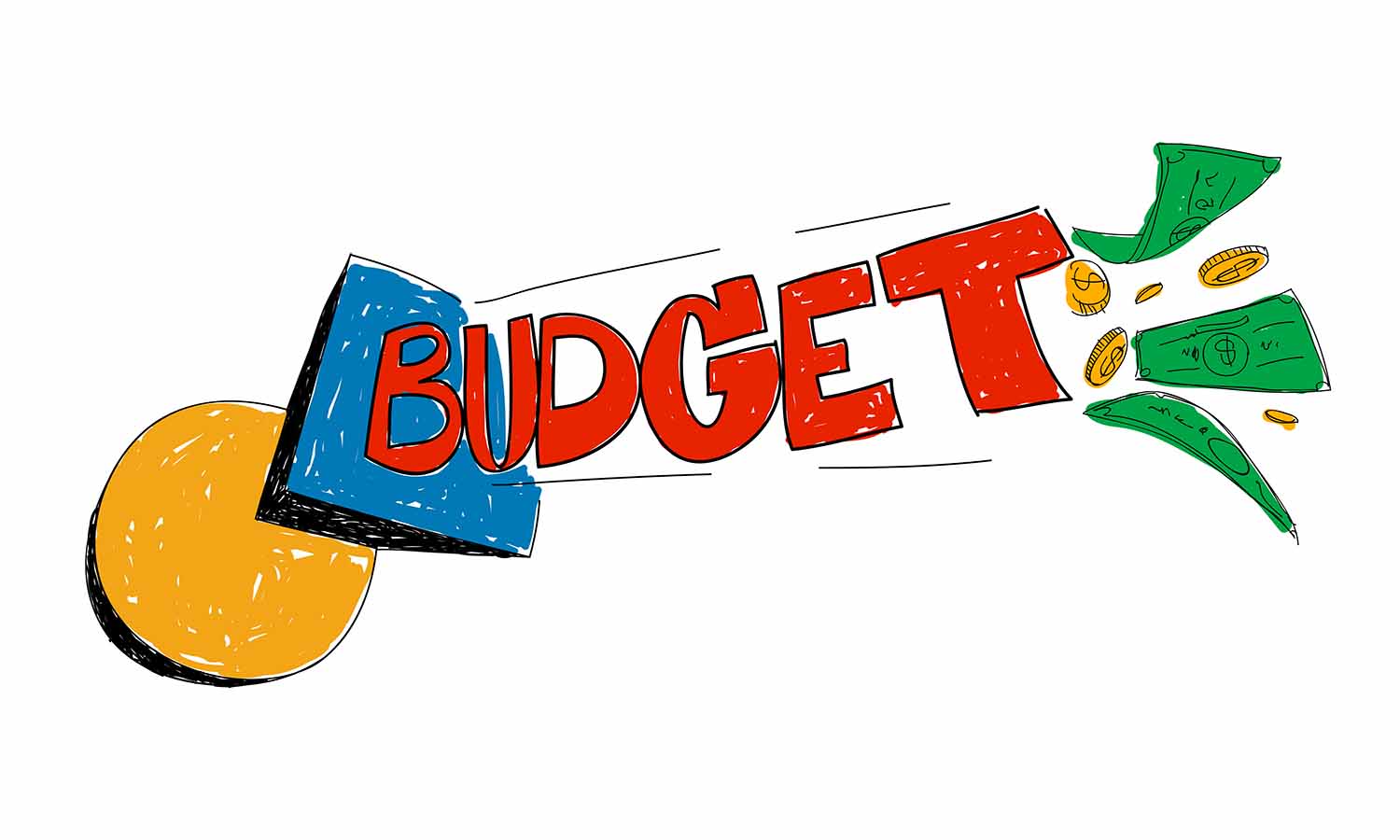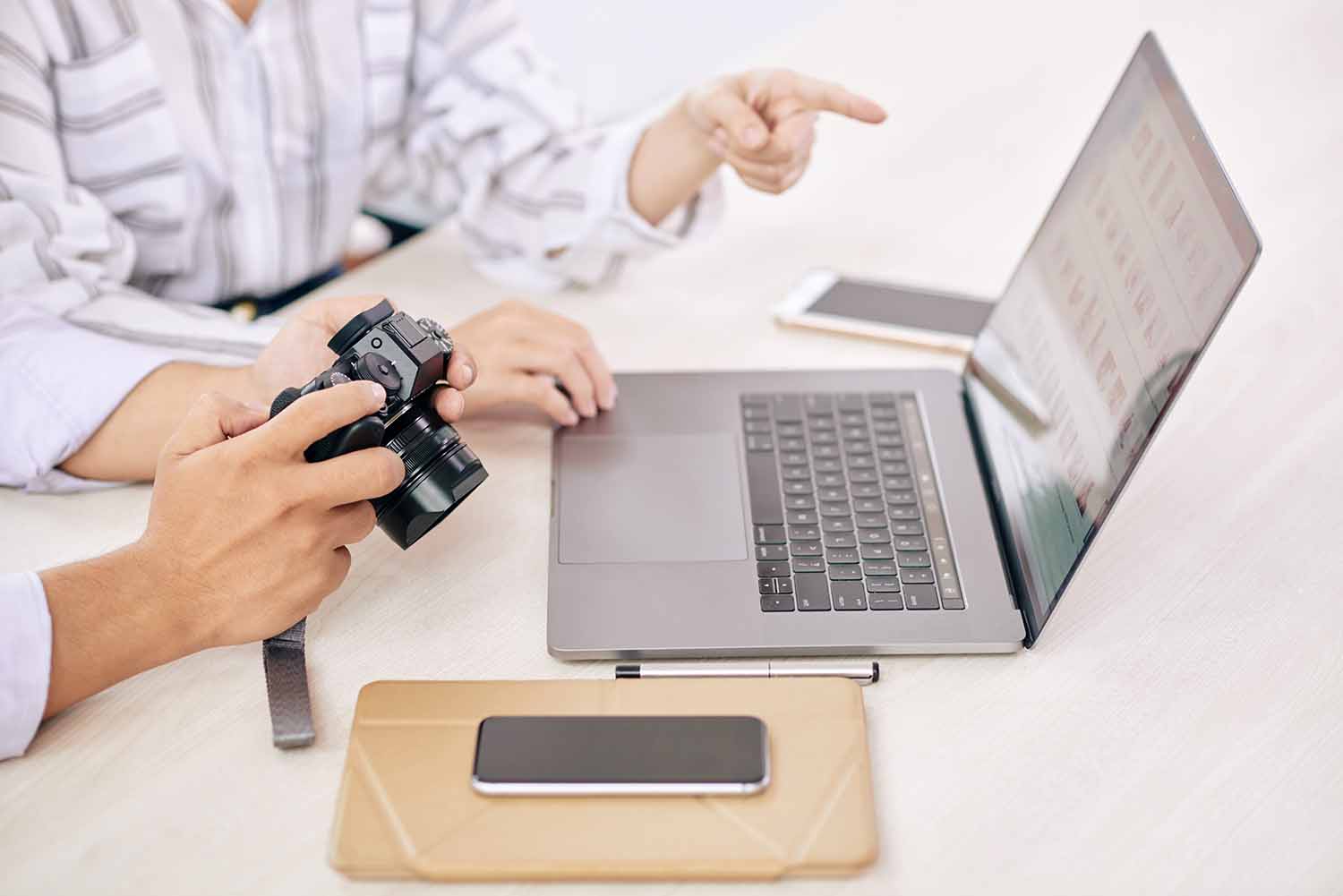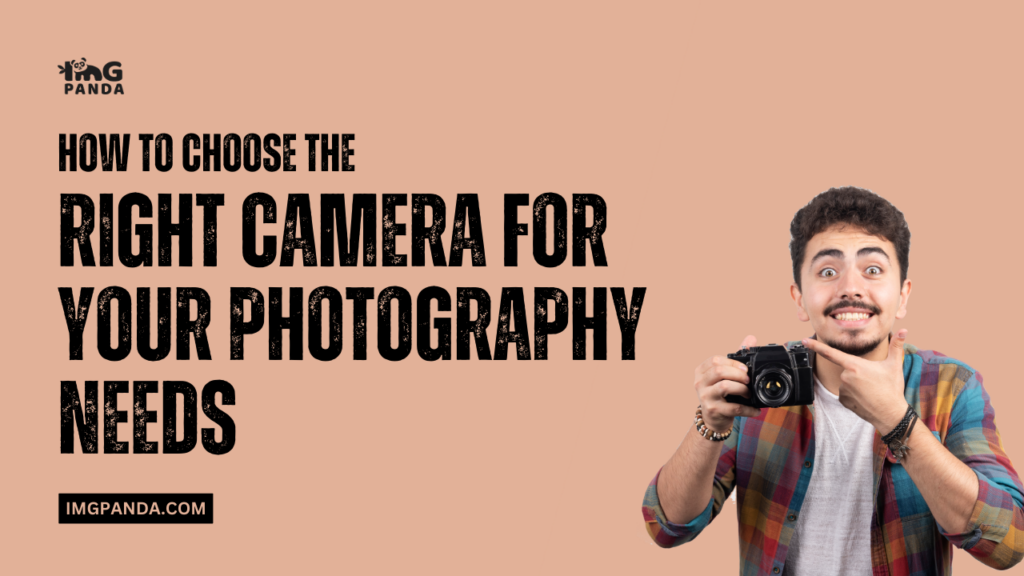Introduction
Photography is a creative and rewarding hobby that allows individuals to capture and preserve memories, document events, and express their artistic vision. However, choosing the right camera for your photography needs can be a daunting task, as there are countless options available on the market. A camera is an investment, and selecting the wrong one can result in disappointment, frustration, and wasted money.
To ensure that you select the right camera for your photography needs, it's important to consider a variety of factors, such as your budget, the type of photography you plan to do, the sensor size, lens options, and features that are important to you. Additionally, it's helpful to read reviews and try out a camera before making a purchase. By taking the time to carefully consider these factors, you can select a camera that meets your needs and helps you to capture stunning and meaningful photographs.
Choosing the right camera for your photography needs can be a daunting task, but it doesn't have to be. Here are some tips to help you make the right choice:
Also Read This: Can You Unsend a LinkedIn Message and What You Should Know
Determine your budget
Determining your budget is a crucial first step when choosing a camera for your photography needs. Cameras can vary greatly in price, with some entry-level models costing a few hundred dollars and professional-grade cameras costing several thousand dollars. It's important to set a budget that is realistic and affordable for you. Consider how often you plan to use the camera and the value that photography holds in your life.
A higher budget may allow you to purchase a camera with better features and image quality, but it's important to balance your budget with your photography needs. Once you have determined your budget, you can begin researching cameras that fit within your price range and offer the features and capabilities you need. Keep in mind that there may be additional costs associated with a camera, such as lenses, memory cards, and accessories, so be sure to factor these into your budget as well.

Also Read This: Royal Rumble 2007 Winner Highlights and Key Moments
Determine your photography needs
Determining your photography needs is another important factor when choosing a camera. Ask yourself what type of photography you plan to do and what kind of photos you want to take. Are you interested in landscapes, portraits, wildlife, or action shots? Do you need a camera that is easy to carry around or one that is more rugged and weatherproof? Understanding your photography needs can help you narrow down your options and select a camera that is suited to your specific needs. Consider factors such as image quality, size and weight, ease of use.
Also Read This: Fortiguard Downloader’s IOC and Outbreak Detection Services
Consider the sensor size
The sensor size of a camera is an important factor to consider. Generally, larger sensors will produce better image quality, especially in low light situations. Sensor size is an important factor to consider when choosing a camera for your photography needs. The size of the camera sensor affects the image quality, depth of field, low-light performance, and overall versatility of the camera.
Generally speaking, larger sensors tend to produce better image quality and perform better in low-light situations. This is because larger sensors have more surface area to capture light, which results in less noise and better dynamic range.
There are different types of sensors used in digital cameras, including full-frame, APS-C, micro four-thirds, and compact. Full-frame sensors are the largest and are typically found in professional-level cameras. APS-C sensors are smaller than full-frame sensors but still offer excellent image quality and are commonly found in mid-range cameras.
Micro four-thirds and compact sensors are smaller still and are often found in mirrorless cameras and point-and-shoot cameras, respectively. When choosing a camera, consider the type of photography you will be doing and your budget. If you're a professional photographer or will be doing a lot of low-light photography, a full-frame sensor may be the best choice.
If you're a hobbyist or on a budget, an APS-C or micro four-thirds sensor may be a good compromise between image quality and price.

Also Read This: Acknowledging a 123RF Image: What You Need to Know
Think about lens options
The type of lenses that are available for a camera can have a big impact on your photography. Consider the types of lenses you may need, such as a wide-angle lens for landscapes or a telephoto lens for wildlife photography. Think about lens options:
When choosing a camera for your photography needs, it's important to consider the lens options available for the camera. Different lenses can greatly affect the look and feel of your photographs, and having a variety of lenses to choose from can expand your creative options.
The type of lenses available for a camera depends on the camera's lens mount, so it's important to research the lens options available for the camera you're considering. If you're interested in portrait photography, a lens with a wide aperture (such as f/1.4 or f/1.8) can create a shallow depth of field and produce a blurred background, which can help make the subject stand out.
A telephoto lens can also be useful for portrait photography, as it allows you to zoom in and fill the frame with the subject. For landscape photography, a wide-angle lens can help capture the expansive views, while a zoom lens with a wide focal range can offer versatility in capturing both wide-angle and telephoto shots.
If you're interested in macro photography, a dedicated macro lens can allow you to capture intricate details and textures of small subjects, such as flowers or insects. If you're interested in a specific type of photography, research the recommended lenses for that type of photography and consider whether the camera you're considering offers those lenses. Additionally, consider the cost of additional lenses and factor that into your budget.
Also Read This: Use Mailchimp Templates with Canva for Your Campaigns
Look for features that are important to you
When choosing a camera for your photography needs, it's important to look for features that are important to you. Different cameras offer different features, so it's important to consider what features you need or want in a camera.
Here are some common camera features to consider:
Autofocus system: A camera's autofocus system can greatly affect the ease and speed of capturing sharp images. Look for a camera with a fast and accurate autofocus system, especially if you'll be capturing fast-moving subjects.
Image stabilization: Image stabilization can help reduce blur caused by camera shake, allowing you to capture sharp images in low-light situations or when using a longer focal length.
Shooting speed: The shooting speed of a camera determines how quickly it can capture images in burst mode. This can be important for sports or action photography, where you want to capture multiple frames per second.
Video capabilities: If you're interested in video, consider a camera with good video capabilities, such as high-resolution recording, slow-motion capabilities, or the ability to connect an external microphone.
Wi-Fi and connectivity: Some cameras offer Wi-Fi connectivity, allowing you to quickly and easily transfer images to your computer or smartphone, or even control the camera remotely.
Weather-sealing: Weather-sealing can protect your camera from dust, moisture, and other environmental factors, making it a good choice for outdoor or travel photography.
User interface and controls: Consider the user interface and controls of the camera, as this can greatly affect how easily you can navigate the camera's settings and menus.
By considering these features, you can choose a camera that meets your specific needs and helps you capture the best possible images. Here's a video introduction on selecting the ideal camera for your requirements - "Choosing the Perfect Camera to Suit Your Needs.
Also Read This: How to Make Rainbow Cake at Home with Easy Recipe Tutorial
Read reviews
Reading reviews can be a great way to get an idea of a camera's performance and how it stacks up against other cameras on the market. There are several websites and publications that offer camera reviews, including photography blogs, tech websites, and camera-specific publications.
When reading reviews, it's important to look for reviews from reputable sources and to read multiple reviews to get a well-rounded perspective on the camera. Pay attention to the reviewer's opinion on image quality, autofocus performance, handling and ergonomics, and any other features that are important to you.
Additionally, consider user reviews and ratings from online retailers or other websites. User reviews can offer insight into real-world experiences with the camera, as well as any common issues or problems that users have encountered.
While reviews can be a helpful tool in making a decision, it's important to remember that every photographer has different needs and preferences, and what works for one photographer may not work for another. Ultimately, the best way to determine if a camera is right for you is to try it out in person and see how it feels in your hands and how it performs in real-world shooting situations.
Also Read This: Creating a YouTube Account Without a Google Account
Try before you buy
If possible, try out a camera before making a purchase. This can give you a better idea of how the camera feels in your hands and how it performs in different situations. Trying a camera before you buy it is a great idea, as it allows you to get a better sense of whether the camera is the right fit for you and your needs.
Here are some tips on how to try before you buy:
Visit a camera store: Many camera stores will allow you to test out different camera models in-store. This can be a great opportunity to get a feel for the camera's size, weight, and features.
Rent a camera: If you want to try out a camera in a real-world setting, consider renting one from a camera rental service. This can be a more expensive option, but it will give you a chance to see how the camera performs in different situations.
Attend a photography event: If you're interested in a specific camera brand or model, check to see if there are any photography events in your area where you can test out the camera.
Remember, when you're trying a camera, pay attention to how it feels in your hand, how easy it is to use, and how well it performs in different lighting conditions. This will help you make an informed decision when it comes time to make a purchase.
By considering these factors, you can make an informed decision when choosing the right camera for your photography needs.
"Choosing the right camera for your photography needs is a personal decision that requires careful consideration of your shooting style, budget, and desired features. Take the time to research and test out different camera models to find the one that feels right in your hands and meets your unique requirements. Remember, the best camera for you is the one that inspires you to capture the world around you in your own unique way."
Also Read This: How to Upload a Video on Dailymotion for Beginners
Pros & Cons
Pros and cons are a way of evaluating the advantages and disadvantages of a particular choice or decision. Here are some pros and cons to consider when choosing a camera:
Pros
High-quality image output: A good camera can produce high-quality images that capture the details, colors, and textures of a scene in a way that a smartphone or other device cannot.
Interchangeable lenses: Many cameras have the ability to swap out lenses, which allows you to choose the best lens for a particular situation. This gives you more creative control over your images.
Manual controls: Many cameras offer manual controls for settings such as aperture, shutter speed, and ISO, which allows you to fine-tune your shots and achieve the desired effect.
Better performance in low light: Cameras typically have larger sensors and better low-light performance than smartphones, allowing you to take sharper, more detailed photos in challenging lighting conditions.
Cons
Cost: Cameras can be expensive, especially if you want high-end features or lenses. It's important to consider your budget when choosing a camera.
Size and weight: Cameras can be bulky and heavy, making them less convenient to carry around than a smartphone or compact camera.
Learning curve: Cameras can have a steeper learning curve than point-and-shoot cameras or smartphones, requiring you to learn about things like manual settings, lens options, and image file formats.
Maintenance: Cameras require regular maintenance, such as cleaning the lens and sensor, which can be time-consuming and costly.
Also Read This: How to Update Your LinkedIn Profile Without Notifying Contacts in 2023
Conclusion
In conclusion, choosing the right camera for your photography needs can be a personal and sometimes challenging decision. It's important to consider factors such as image quality, lens options, manual controls, low-light performance, cost, size and weight, learning curve, and maintenance when making your decision. Researching and testing out different camera models can help you find the best camera for your needs and preferences. Ultimately, the camera that inspires you to capture the world around you in your own unique way is the best camera for you.
FAQs
What factors should I consider when choosing a camera for my photography needs?
When choosing a camera, consider factors such as image quality, lens options, manual controls, low-light performance, cost, size and weight, learning curve, and maintenance.
Should I prioritize image quality or ease of use when choosing a camera?
It depends on your needs and preferences. If image quality is most important to you, you may want to choose a camera with manual controls and interchangeable lenses. If ease of use is a top priority, consider a point-and-shoot camera or a smartphone with a good camera.
How much should I expect to spend on a good camera?
The cost of a good camera can vary widely, depending on the brand, model, and features. Entry-level DSLRs and mirrorless cameras can cost around $500 to $800, while higher-end models can cost thousands of dollars.
What should I look for when testing out a camera in-store?
When testing out a camera in-store, pay attention to how it feels in your hands, how easy it is to use, and how well it performs in different lighting conditions.
Should I consider renting a camera before I buy it?
Renting a camera can be a good way to try it out in a real-world setting before making a purchase. However, it can also be more expensive than simply purchasing the camera outright.
